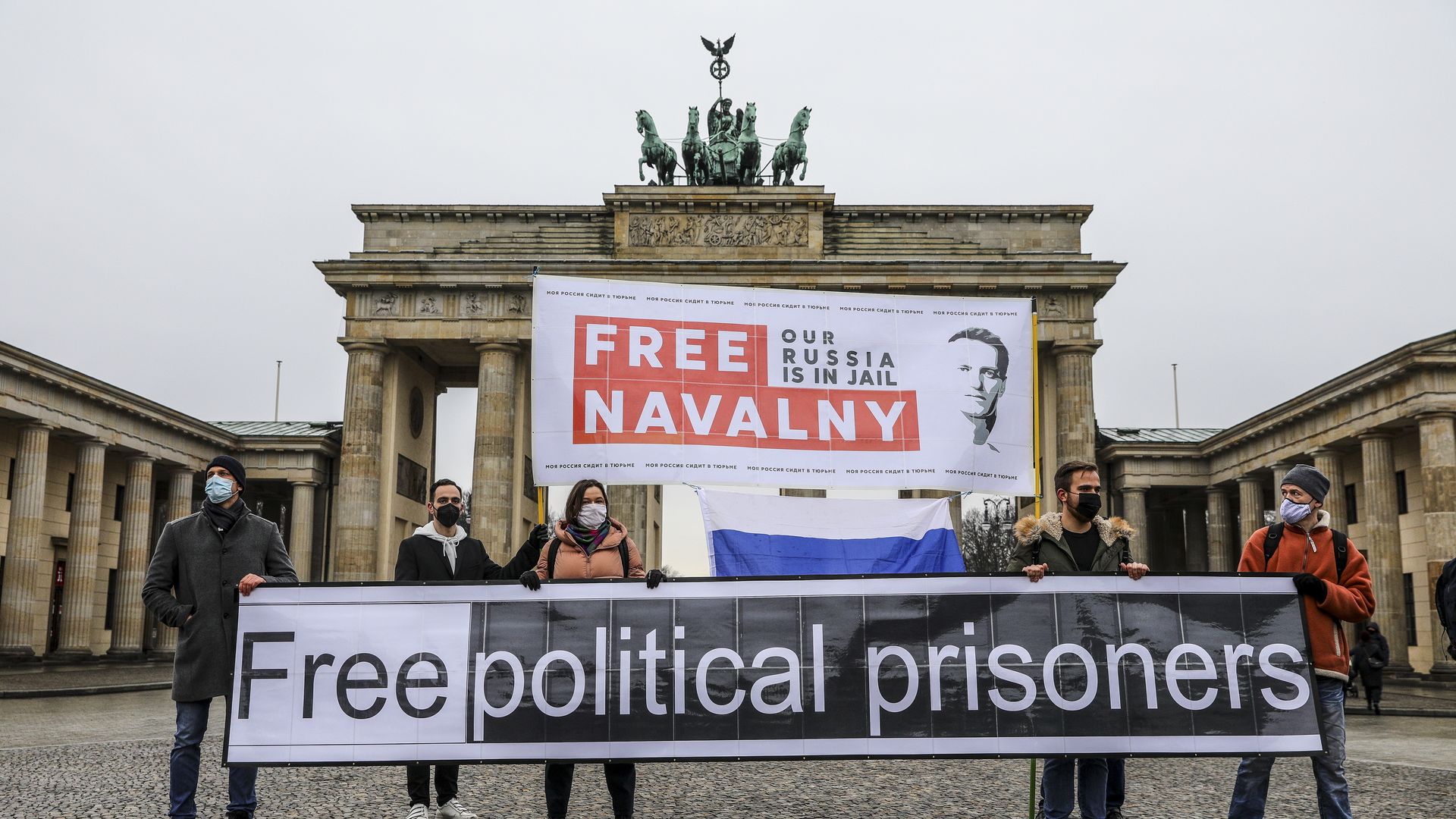U.S. sanctions Russian officials over Navalny poisoning and detention
Add Axios as your preferred source to
see more of our stories on Google.

Pro-Navalny protesters in front of the Brandenburg Gate in Berlin. Photo: Omer Messinger/Getty Images
The U.S. will sanction 7 senior Russian officials over the poisoning and jailing of opposition leader Alexey Navalny, the Biden administration confirmed on Tuesday.
Why it matters: The sanctions represent the first penalties the U.S. has imposed on Kremlin-linked officials since President Biden took office and pledged to confront Russian aggression.
Details: Administration officials told reporters on a briefing call that U.S. intelligence has assessed "with high confidence" that Federal Security Service (FSB) officers poisoned Navalny using the nerve agent Novichok.
- The 7 Russian officials sanctioned by the Treasury Department include FSB director Aleksandr Bortnikov, domestic policy chief Andrei Yarin, first deputy chief of staff Sergei Kiriyenko, deputy defense minister Aleksey Krivoruchko, deputy defense minister Pavel Popov, federal prisons director Alexander Kalashnikov, and prosecutor general Igor Krasnov.
- The U.S. will also add 14 entities linked to the production of chemical and biological weapons in Russia to a Commerce Department blacklist.
- The sanctions were coordinated with the European Union, which announced separately on Tuesday that it had sanctioned four Russian law enforcement officials for their roles in the "arbitrary arrest, prosecution and sentencing" of Navalny — as well as the ensuing crackdown on protestors.
What they're saying: "The United States is not trying to reset our relations with Russia, nor are we attempting to escalate," one administration official told reporters.
- The official added that this was the first in a series of actions responding to Russia's adversarial actions, noting that a response to the massive SolarWinds hack of U.S. government agencies would be coming "sooner rather than later."
- But the official added that the administration plans to work with Russia on issues like nuclear arms control, even as other aspects of the relationship are "adversarial."
Background: Navalny, an anti-corruption activist often described as "the man Vladimir Putin fears most," was poisoned last August with Novichok, a calling card of the Russian security services. He has accused Putin of ordering the attempted assassination, a charge that the Russian strongman denies.
- Navalny spent months recovering in Germany before flying back to Russia three days before Biden's inauguration, where he was immediately arrested for allegedly violating parole. The detention sparked widespread protests across Russia.
- Navalny was sentenced to 2.5 years in prison last month and transferred last week to a notorious prison camp known for imposing "extreme psychological pressure" on inmates.
Between the lines: Navalny's allies have called on the U.S. and EU to sanction a list of 35 Russian oligarchs and officials believed to be responsible or complicit in human rights abuses or corruption, arguing that their close ties to Putin and vast international wealth would render the sanctions more effective.
- A senior administration official said today's action would focus on government officials, but that this was only the first of a series of steps.

